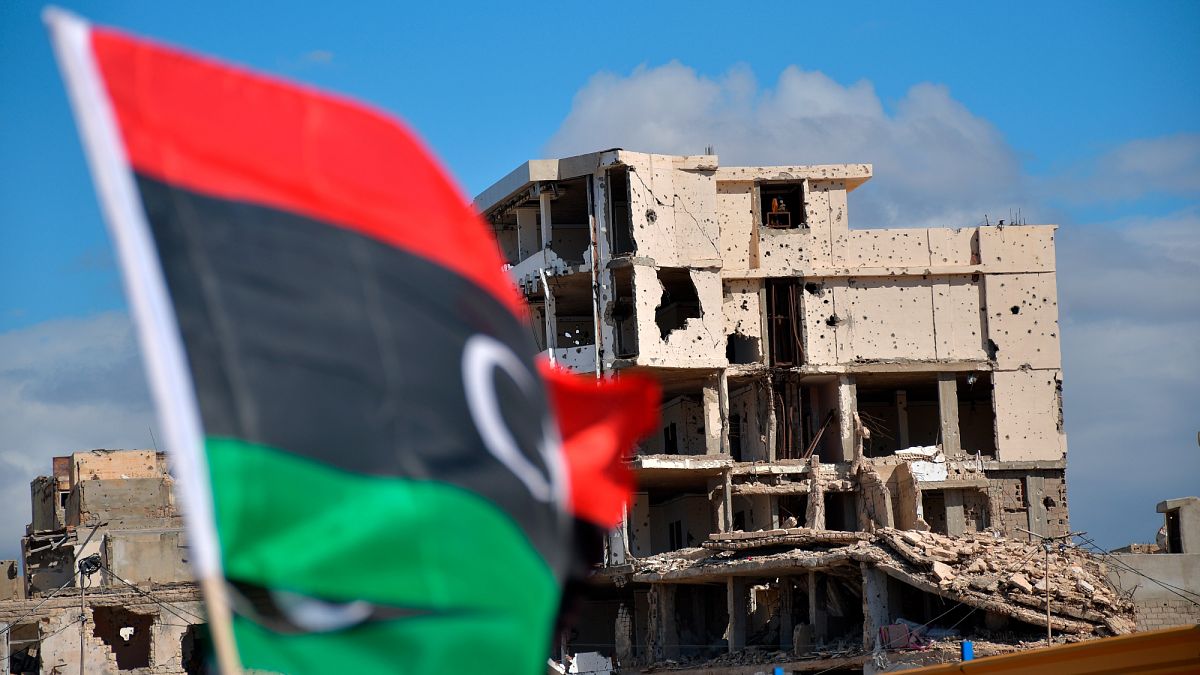European Union leaders have agreed to send a new diplomatic delegation to Libya after the military leader Khalifa Haftar asked the previous representatives to leave the country.
Speaking on the sidelines of On the sidelines of the Ukraine Recovery Conference in Rome, Greek Prime Minister Kyriakos Mitsotakis, President of the European Commission Ursula von der Leyen, Italy’s Prime Minister Giorgia Meloni and the Prime Minister of Malta Robert Abella said it was important to re-engage with Libya.
The four leaders agreed on the need to reactivate the Team Europe initiative, with a delegation from the European Commission, as well as ministers from Greece, Italy and Malta, to be re-deployed to Libya.
Team Europe consists of the European Union, EU Member States, as well as the European Investment Bank (EIB) and the European Bank for Reconstruction and Development (EBRD) and aims to be a coordinated approach to solving problems.
The Rome talks come after military leader Khalifa Haftar, who holds de facto power in large parts of eastern Libya, orchestrated a meeting on Tuesday as a means of “trapping” an EU delegation into recognising the legitimacy of the Benghazi-led Libyan administration, a source familiar with the issue told Euronews.
The delegation was declared “personae non grata” and asked to leave Libyan territory upon arrival at the airport of Benghazi.
The mission included Commissioner for Home Affairs and Migration Magnus Brunner, Italian Interior Minister Matteo Piantedosi, Maltese Interior Minister Byron Camilleri, Greek Minister for Migration and Asylum Athanasios Plevris, and EU Ambassador to Libya Nicola Orlando.
The mission travelled to eastern Libya after meeting in Tripoli with representatives of the Government of National Unity (GNU), the internationally recognised executive led by Abdul Hamid Mohammed Dbeibah, which controls Tripoli and western Libya.
The diplomatic incident risked complicating Europe’s efforts to prevent a wave of irregular migration from Libya to Europe.
Arrivals have surged in recent weeks to such an extent that Greece decided on Wednesday to temporarily suspend asylum requests for those arriving from North Africa by sea.
More than 500 people were transferred to the port of Lavrio near Athens earlier on Thursday after being intercepted south of the island of Crete.
The transfers to the mainland were ordered because makeshift reception centres on Crete have reached capacity, with around 500 new arrivals per day on the Mediterranean island since the weekend.
Trying to reach Europe
Authorities on Crete are struggling to provide basic services, using temporary facilities to house migrants, primarily from Somalia, Sudan, Egypt and Morocco, according to island officials.
Greece remains a key entry point to the EU for individuals fleeing conflict and hardship in the Middle East, Africa, and Asia.
Arrivals surged last year, with over 60,000 migrants landing in Greece — the majority by sea — compared to around 48,000 in 2023, according to UN refugee agency data.
By mid-June 2025, Greece had recorded 16,290 arrivals, over 14,600 of which were by sea.
With Greek authorities stepping up patrols along the eastern maritime border with Turkey, traffickers appear to be increasingly choosing the longer and more dangerous route across the Mediterranean from North Africa, using larger boats capable of carrying more people.
Read the full article here


